Can Hermit Crabs Live in Tap Water?
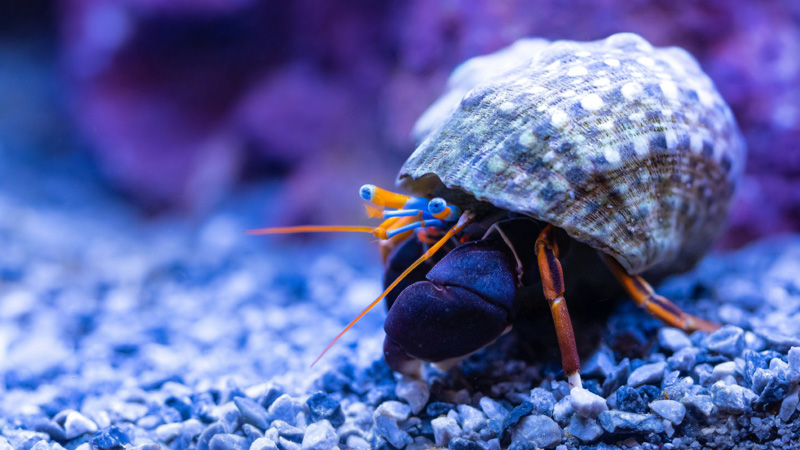
Photo by William Warby on Unsplash
As responsible pet owners, it's important to ensure that we are providing the best care for our hermit crabs. One aspect that often raises questions is the type of water we should use for their habitat. Many hermit crab owners wonder whether tap water is suitable for their pets. In this article, we will delve into the subject and explore the effects of tap water on hermit crabs. We will also discuss alternative options and offer recommendations for providing the best water source for these fascinating creatures.
Understanding Hermit Crab Water Requirements
Hermit crabs, like all living organisms, require water for essential physiological functions. While they primarily absorb moisture through their gills and specialized respiratory structures, they also need access to water for drinking, bathing, and maintaining body moisture levels. In their natural habitat, hermit crabs inhabit coastal areas where they have access to both freshwater and saltwater environments. Therefore, providing both types of water is crucial for meeting their specific needs and promoting their health and well-being in captivity.
Tap Water vs. Distilled Water
Tap water is the most readily available source of water for many hermit crab owners. However, tap water often contains various chemicals, including chlorine and chloramines, which are added during the water treatment process to disinfect and kill harmful bacteria. While these chemicals are safe for human consumption, they can be harmful to aquatic animals, including hermit crabs, if present in high concentrations.
Distilled water, on the other hand, is purified through a process of distillation, which removes impurities and contaminants, including minerals, chemicals, and microorganisms. Distilled water is considered safe for hermit crabs and is often recommended by pet experts for use in their habitats. However, it's essential to note that distilled water lacks essential minerals and electrolytes that hermit crabs need for their health and well-being.
Can Hermit Crabs Live in Tap Water?
The answer to whether hermit crabs can live in tap water depends on several factors, including the quality of the tap water, the presence of chemicals such as chlorine and chloramines, and the overall health of the crabs. In some cases, tap water may be safe for hermit crabs if treated properly to remove harmful chemicals. However, in other cases, tap water may contain high levels of contaminants that could harm hermit crabs and affect their health and longevity.
Potential Risks of Tap Water for Hermit Crabs
Providing tap water directly to hermit crabs can pose several risks. The chemicals in tap water can cause stress, illness, and even death in extreme cases. Hermit crabs may exhibit signs of discomfort, including increased aggression, lethargy, or disorientation, when exposed to chlorinated water. Additionally, tap water often contains other impurities such as heavy metals or pesticides, which can further impact the health of these creatures.
Chlorine and Chloramines: The presence of chlorine and chloramines in tap water can be harmful to hermit crabs if not properly treated. These chemicals can irritate their sensitive respiratory structures and cause respiratory distress, leading to breathing difficulties and stress-related health problems.
Heavy Metals and Contaminants: Tap water may contain heavy metals and other contaminants that can be harmful to hermit crabs if present in high concentrations. These contaminants can accumulate in their bodies over time, leading to toxicity and health issues.
Alkalinity and pH Levels: Tap water may have high alkalinity and pH levels, which can affect the acidity of the water and the overall health of hermit crabs. Extreme pH levels can disrupt their physiological processes and lead to stress and health problems.
How to Make Tap Water Safe for Hermit Crabs
While tap water may not be ideal for hermit crabs, there are several steps you can take to make it safer for them to use:
Dechlorination: Use a water conditioner specifically designed for removing chlorine and chloramines from tap water. These products neutralize harmful chemicals and make the water safe for hermit crabs to use.
Filtration: Use a water filtration system or filter to remove impurities and contaminants from tap water. This can help improve the water quality and make it safer for hermit crabs.
Aging: Allow tap water to sit out for at least 24 hours before adding it to the hermit crab habitat. This allows chlorine and chloramines to dissipate naturally, reducing the risk of respiratory irritation in the crabs.
Testing: Test the tap water regularly for chlorine, chloramines, pH levels, and other contaminants. This will help you monitor the water quality and ensure it meets the needs of your hermit crabs.
Alternatives to Tap Water
Thankfully, there are alternative water sources that can be used to ensure the well-being of hermit crabs. Here are a few recommended options:
Distilled Water: Distilled water is a reliable choice for providing freshwater to hermit crabs. It is free from impurities and chemicals found in tap water. However, it is important to note that distilled water lacks minerals that hermit crabs require, so it should be supplemented with a calcium supplement.
Filtered Water: Using a high-quality water filter can help remove chlorine and other impurities from tap water, making it safer for hermit crabs. However, it is essential to choose a filter specifically designed to remove chlorine effectively.
Well Water: If you have access to well water, it can be an excellent option for hermit crabs. Well water is often free from chlorine and other chemical additives. However, it should still be tested for other impurities.
Rainwater: Rainwater collected in a clean container can be a natural and safe water source for hermit crabs. However, it is important to ensure that the rainwater is not exposed to pollutants or contaminants.
Conclusion
While hermit crabs can potentially survive in tap water, it is not recommended due to the adverse effects of chlorine and other impurities. Instead, distilled water, filtered water, well water, or rainwater should be used as alternative water sources to ensure the health and well-being of these fascinating creatures. If using tap water is unavoidable, treating it with a dechlorinator is an important step to minimize potential harm.
Regardless of the water source chosen, regular monitoring of water quality is essential. Water should be cleaned, refreshed, and free from waste, uneaten food, and any debris. This ensures a healthy and hygienic environment for hermit crabs.
You May Also Like
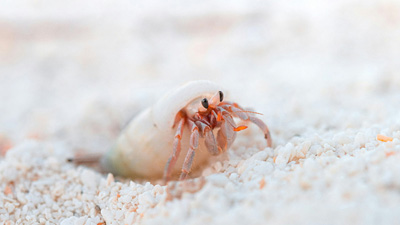 Other PetsIs a Hermit Crab a Vertebrate or Invertebrate? (Invertebrate)
Other PetsIs a Hermit Crab a Vertebrate or Invertebrate? (Invertebrate)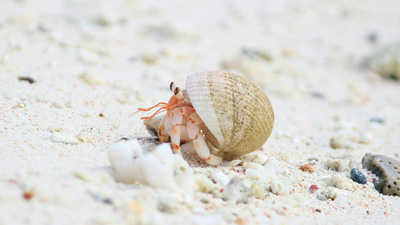 Other PetsDoes a Hermit Crab Have a Backbone?(No, Invertebrates)
Other PetsDoes a Hermit Crab Have a Backbone?(No, Invertebrates)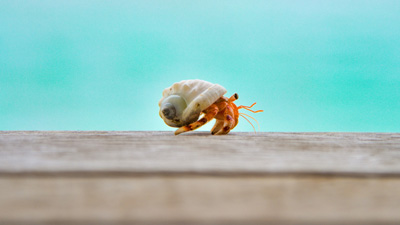 Other PetsThe 5 Most Common Pet Hermit Crabs
Other PetsThe 5 Most Common Pet Hermit Crabs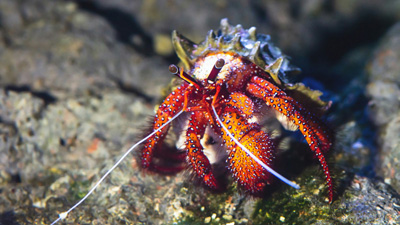 Other PetsHow Long Does a Hermit Crab Live as a Pet?
Other PetsHow Long Does a Hermit Crab Live as a Pet?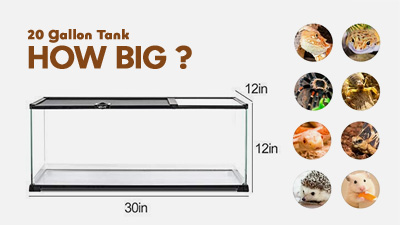 Other PetsHow Big is a 20-Gallon Reptile Tank in Inches?
Other PetsHow Big is a 20-Gallon Reptile Tank in Inches?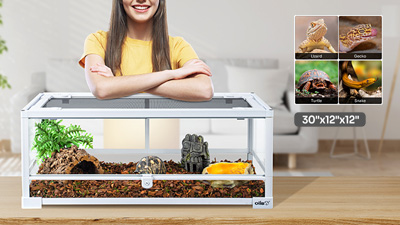 Other PetsThese 5 Reptiles Are Suitable for a 20-Gallon Tank
Other PetsThese 5 Reptiles Are Suitable for a 20-Gallon Tank